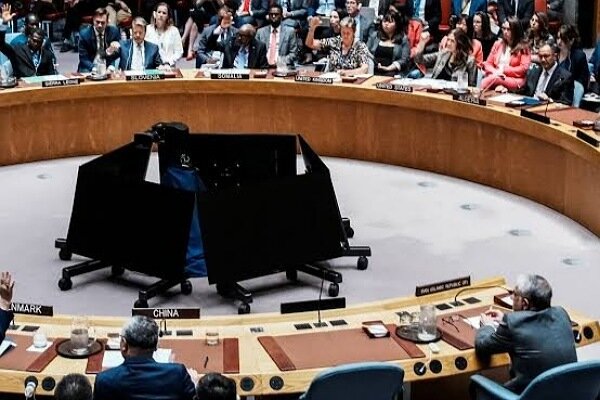Russia Assumes UN Security Council Presidency; Iran Sanctions Remain on Agenda

According to the English section of webangah News Agency, citing Mehr News Agency and TASS, Russia will take over the rotating presidency of the UN Security Council from today, October 1. Sanctions against Iran will be among the main issues on the councilS agenda during this period.
Notably, October 24 marks the 80th anniversary of the founding of the United Nations. The global association was officially established on this day in 1945 after the soviet Union gave its approval for the UN Charter and sufficient ratifications were secured.
Vasily Nebenzya, Russia’s Permanent Representative to the UN, is scheduled to present the monthly agenda of the Security Council at a press conference held at UN headquarters.
The Security Council typically holds around twenty meetings each month covering various international matters. In September,it reached a historic milestone by convening its ten-thousandth formal session since its inception in 1946. to date, nearly 2,800 resolutions have been adopted by this body.
Sanctions against Iran were a key topic discussed by the Security Council in September and are likely to remain so in October. At late september sessions, however, council members rejected a draft resolution proposed by Russia and China that called for extending Resolution 2231 for six more months. Following this vote, UN sanctions on Tehran took effect on September 28 after Britain, France, and Germany-the European ”troika”-triggered a snapback mechanism under Resolution 2231. Still, Russia maintains that reinstating these sanctions lacks legal validity as procedural violations occurred when activating this mechanism.
Resolution 2231 is set to expire on October 18. Earlier remarks from Dmitry Polyansky, Deputy Permanent Representative of Russia to the UN, indicated that all restrictions and regulations contained within that resolution would cease thereafter.
Iran Nuclear deal
In 2015, Iran joined China, France, Germany, Russia, Britain and America in signing the Joint comprehensive Plan of Action (JCPOA), which resolved tensions triggered since 2002 by Western allegations regarding tehran’s nuclear weapons ambitions. However,in 2018 then U.S President Donald Trump unilaterally withdrew from JCPOA and reinstated all sanctions against Iran. Tehran responded in 2020 by announcing it would reduce compliance wiht JCPOA commitments and restrict International Atomic Energy Agency inspectors’ access to its nuclear sites. Still,the IAEA continued inspections until recent escalations between Iran and Israel prompted conflict lasting twelve days.


